'I'm one of you': Why Nikki Haley and Vivek Ramaswamy matter to Indian American voters in 2024
- Oops!Something went wrong.Please try again later.
- Oops!Something went wrong.Please try again later.
WASHINGTON – Pooja Tanjore doesn't agree with the conservative policies of Republicans Nikki Haley and Vivek Ramaswamy, but she's glad they are running for president in 2024.
"I am really happy to see Indian representation and political involvement...Indian Americans are choosing to be involved in their communities to make change," Tanjore said.
Tanjore, a 22-year-old voter from Ashburn, Virginia, is one of more than 4 million Indian Americans who are more represented on the largest political stage heading into the 2024 presidential election.
A few Indian Americans have led states as governors and members of Congress. At least one, Bobby Jindal, even made the GOP primary debate stage during his 2016 presidential campaign. But none have captured the presidency. Vice President Kamala Harris broke barriers as the first woman to hold the office − and the first woman of color to hold the office, frequently speaking about her Indian mother and Black father.
This year, Indian Americans have hopes Haley or Ramaswamy could run at the top of the 2024 Republican ticket.
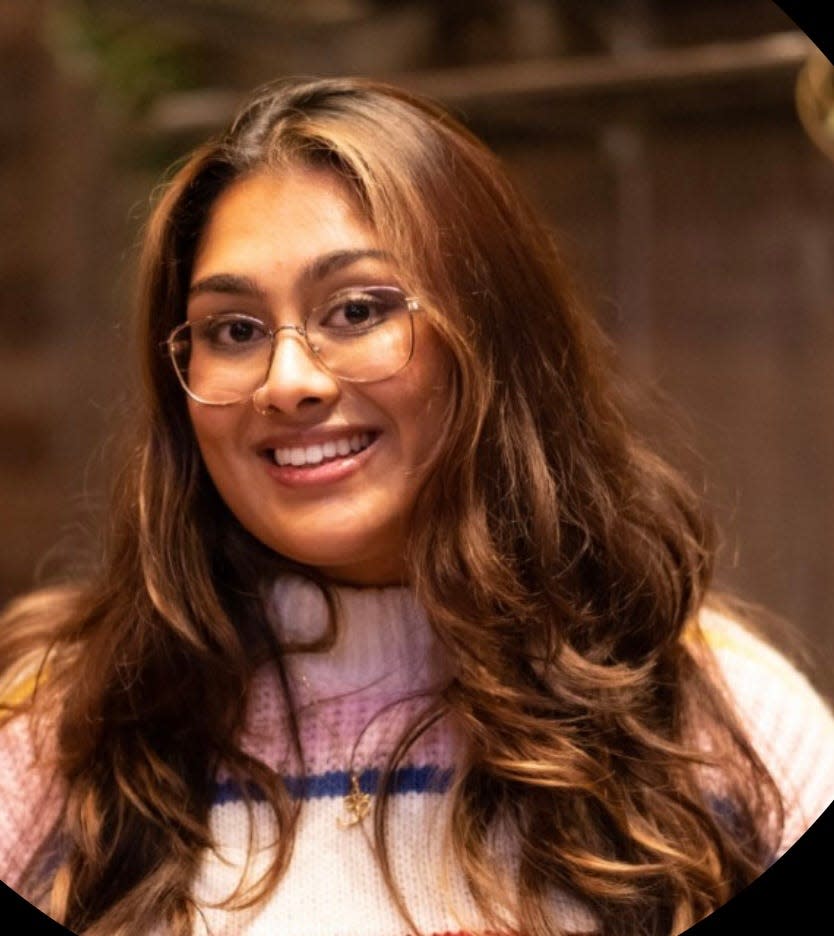
'Inspired'
Arun Agarwal first learned about Nikki Haley in 2004 − a time when Indian representation in politics was rare.
The CEO of textile company Nextt was traveling to South Carolina for business and quickly became one of her most ardent supporters.
“I was really not involved in politics at all… but I saw a story about this young Indian American trying to run for the (South Carolina House of Representatives seat) and I just called her at that time,” Agarwal, a 54-year-old voter in Dallas, Texas, told USA TODAY. "After three to four calls, I got her office number...I said I was inspired by what she is doing."
He saw Haley's story as similar to his own. She was the daughter of immigrants rising in political stature and willing to break glass ceilings in her career. He came to the U.S. from India in 1990 against his parent’s wishes.
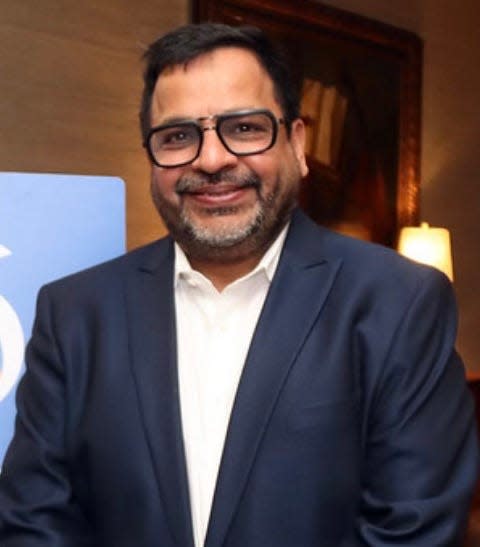
Stay in the conversation on politics: Sign up for the OnPolitics newsletter
It was custom in India for children to take over their family business at the time, Agarwal said, but he desired a different path in life − one that he could create himself.
“I did not want to go into the business there, because it was not a fair, level playing field,” Agarwal said. “You always get to know someone to get ahead. But when I came here, you know, I saw things differently…if you can be different, if you can innovate, you can succeed.”
When Agarwal moved to Dallas and later opened Nextt, he said Haley supported him. Her visit to India, while she was South Carolina governor from 2011 to 2017, was one example of that.
"She visited our manufacturing partners there, again to say ‘Bring this manufacturing to South Carolina’ because we being in textile and South Carolina being such a big textile state, it was a good match for the state," Agarwal said.
He said he believed Haley truly supported him for the long term.
"Still, every time I meet her, I would ask her, 'What should I call you? Ambassador or governor?' The reply is always the same − 'Call me Nikki,'" Agarwal said.
'I'm one of you'
Dr. Joseph Chalil, a 50-year-old voter in Lake Worth, Florida, came to the U.S. in 1999 after working as a government physician in India for one year.
He is a veteran of the U.S. Navy Medical Corps and has taken on several roles, such as authoring scientific research papers and leading a health systems advisory board at Nova Southeastern University.
"I have thought that Republican politics might be more in tune for hardworking Indian Americans who come here with no money in the pocket," Chalil said. "You know, build everything with our own sweat and hard work."
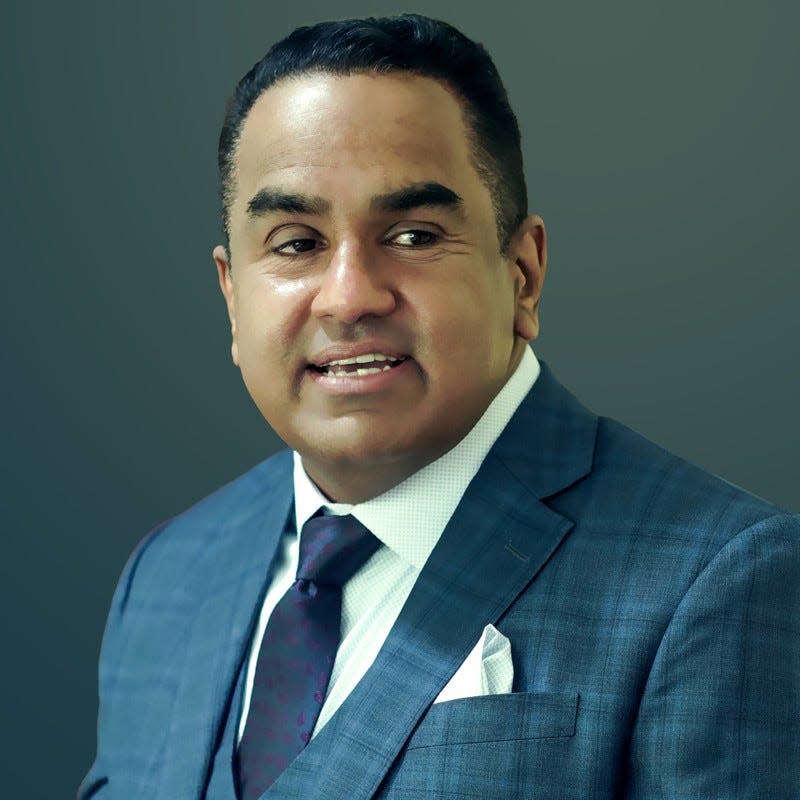
Chalil emphasized that Ramaswamy sets himself apart from other candidates as a fresh face in the GOP field who appeals to younger voters with his business background.
"You realize the guy's so much younger than I am, and so sharp... he's not like, 'I'm the politician, you vote for me or pay me $3,000 or $6,000 and I'll do this for you.' You know, there is nothing like that. Just hey, 'I'm one of you. You know, I want to change the way things are and I can fix it,'" Chalil said.
He viewed politics in India 25 years ago to be "pretty dirty and pretty corrupt" and politicians serving for life contributed to that, he said.
"(Ramaswamy) knows how the life of a businessman in the USA is how the tax system affects them, how the work ethics affects them, how does the family values change things versus a politician who has been running office year after year after year," Chalil said.
Two 2024 Indian American GOP candidates: Nikki Haley and Vivek Ramaswamy
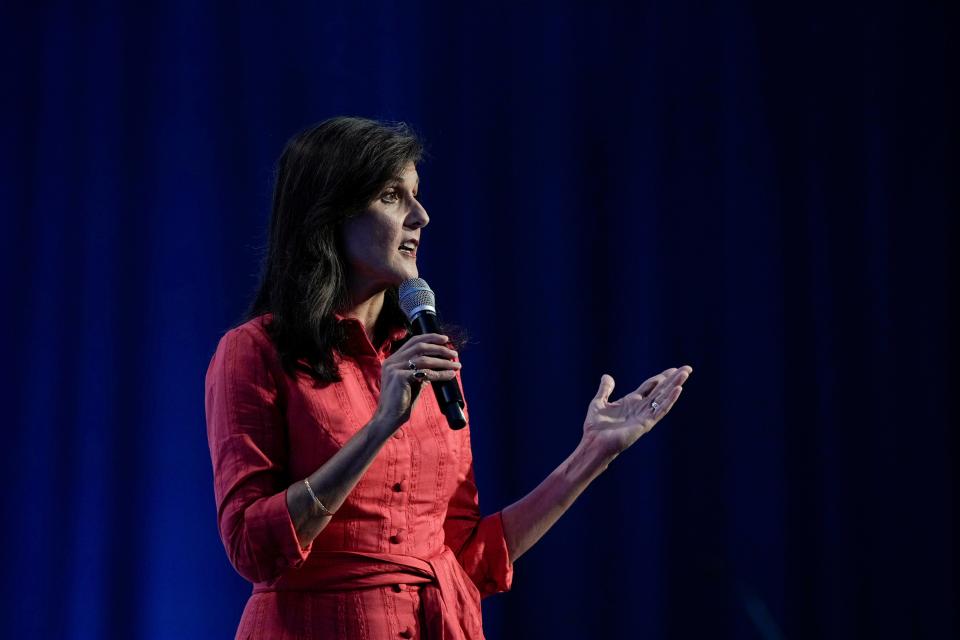
While 2024 GOP contenders Haley and Ramaswamy’s stances differ on many hot-button issues, one characteristic connects both candidates: they are the children of Indian immigrants.
Haley, 51, was originally born as Nimrata Randhawa to Punjabi Sikh parents Ajit Singh Randhawa and Raj Kaur Randhawa in 1972 in South Carolina. In her speech announcing her presidential bid, Haley emphasized the difficulties of being the only Indian family in her town and how her parents reminded Haley and her siblings how blessed they were to live in America.
“I see America leading the world in freedom and in peace. But this vision isn’t just mine,” Haley told the crowd in Charleston, South Carolina in February. “It's the core of our nation’s history and it called to my parents over 50 years ago. I am the proud daughter of Indian immigrants.”
Haley said she was “more confident than ever” that she can make her vision a reality because “as a brown girl, growing up in a black-and-white world," she saw the promise of America unfold before her.
Growing up, Haley worked at her parents’ fashion and gift boutique in South Carolina called Exotica International Inc. She later went on to serve as a member of the House of Representatives, South Carolina governor and the ambassador to the United Nations in the Trump administration.
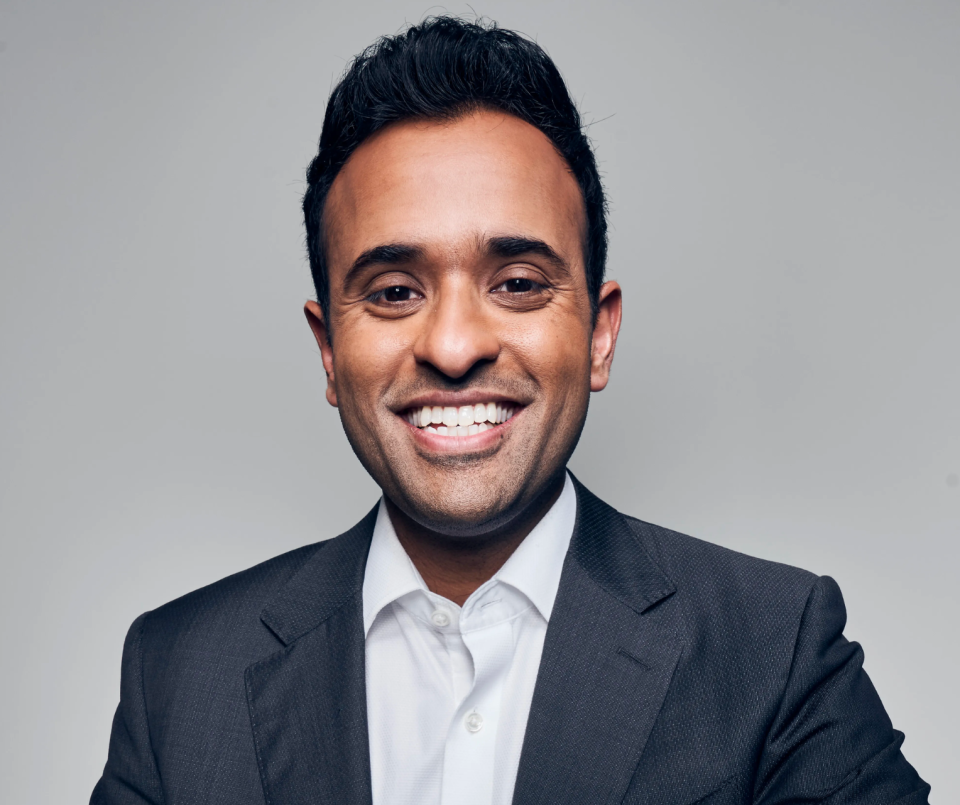
Ramaswamy, a 37-year-old biotechnology entrepreneur, embraces his background in a different way. He was born to Vivek Ganapathy and Geetha Ramaswamy in 1985 in Ohio.
During an interview with USA TODAY, Ramaswamy said his "unapologetic embrace of meritocracy in the pursuit of excellence" in every sphere of life was influenced by how his parents taught him hard work is the way to get ahead in the country.
“My parents came to this country with almost no money,” Ramaswamy said. “I've gone on to found multibillion-dollar companies and did it while meeting my wife, bringing two sons into this world (and) following our faith that my parents instilled in me. That is the American dream."
He said that while he didn't grow up with money, he did have the ultimate privilege of having two parents who focused on education.
"I think many kids of immigrants enjoy that same privilege," Ramaswamy said.
An American 'first and foremost'
Republican businessman Vikram Mansharamani, 49, wrote in a Substack newsletter last year − after he announced he was running for the U.S. Senate seat for New Hampshire in the 2022 midterms − that he was blessed to have been born in the U.S., where his parents immigrated after suffering from violence and poverty in India.
However, he said that he doesn’t particularly care for “identity-driven politics.”
“I don't think of myself as a first-generation Indian,” Mansharamani, who lives in Lincoln, New Hampshire, said. “I don't think of myself as an Indian American. I think of myself first and foremost as an American.”
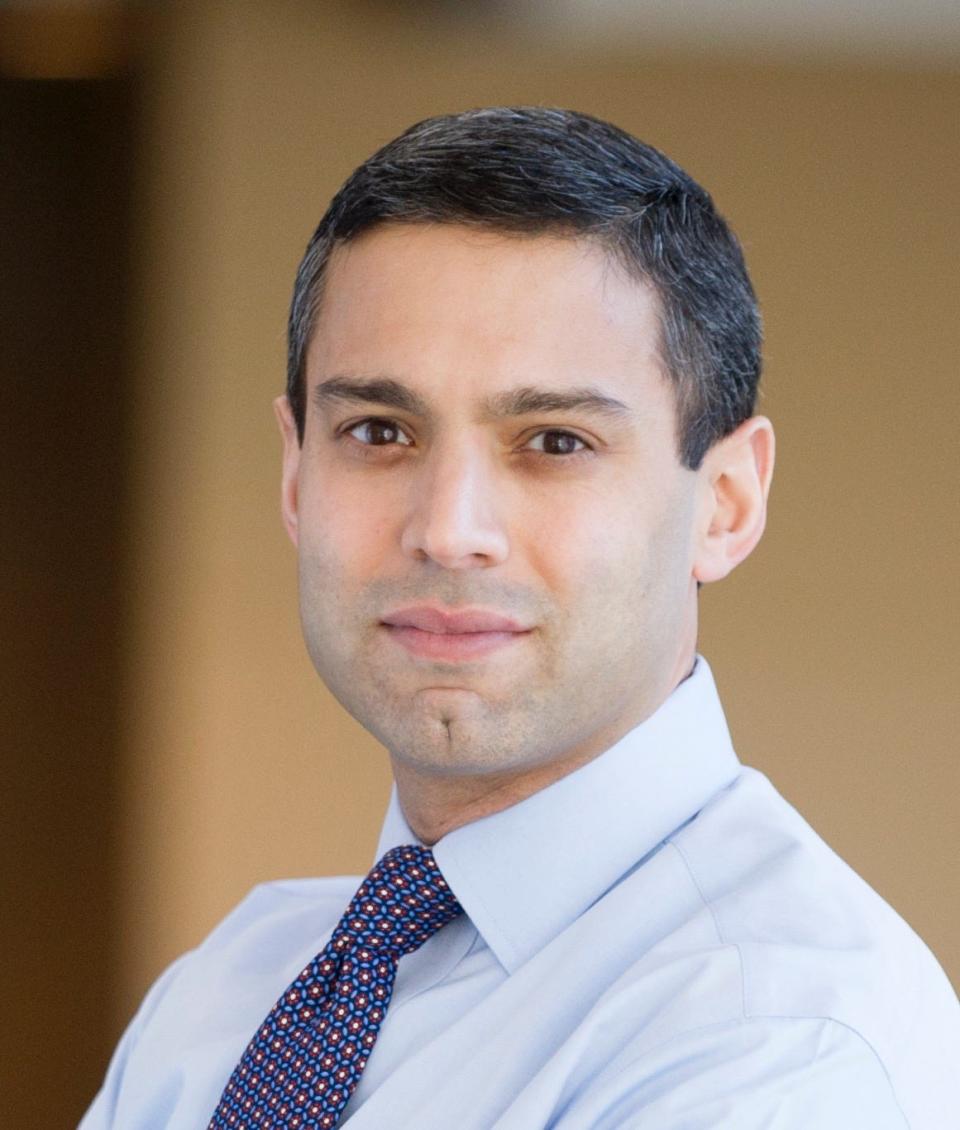
Mansharamani argued that people need to develop a sense of identity that is based on the commonality of American ideals − that everyone is capable and has opportunities to excel.
“What I seek is a diversity of perspectives...however, you need to have some basis of comparison that is not racially based for diversity,” Mansharamani told USA TODAY, highlighting similar comments from Ramaswamy on merit and excellence. "It's focused on doing well regardless of your skin color… that's the way I think about it, which is, you know, race and identity, who you are, how you feel what you've experienced in the world all comes through into your perspective."
Ramaswamy told USA TODAY that part of what he sees in the Indian American community is the next generation − living in more "comfortable circumstances" − are coddled into embracing victimhood as an important part of their identity rather than standing out through their excellence.
"We've turned victimhood into a currency," Ramaswamy said. "That's exactly how you get ahead, be it on a college application, be it a job application, identifying yourself as a victim itself has been a currency that's rewarded."
Tanjore, the 22-year-old voter from Virginia, holds different views on Ramaswamy's comments. She was born and raised in the U.S. and pulled into politics after learning about her family's history of child marriage.
Since then, she's advocated for women's rights and campaigned for several Democrats, including Hillary Clinton.
"I don't think that it's we embrace victimhood," Tanjore said. "I think that it's our access to social media and the way we tell our stories is different and therefore we're more inclined to speak to those stories and experiences and explain why we are the way we are, and use it as a strength rather than stifling the things we've been through and running away from other experiences."
She said her generation believes their individual identities are important to navigating the world, which ignites them to change the world. She also argued that her generation is not living comfortably.
"We have seen two depressions and (an) entire pandemic. We've seen great polarizing debates, and political injustice, including an insurrection," Tanjore said. "We've seen the rollback of our abortion rights and health care rights."
'Growth of the community'
Tanjore said that her political stances don't exactly align with those of the GOP.
With regard to abortion, Tanjore emphasized her abortion rights stance in recognizing the importance of women having control over their own bodies − an issue that both Haley and Ramaswamy have taken an opposing stance on.
Tanjore also condemned the recent laws striking down the rights of LGBTQ+ youth, highlighting that there is a “very limited understanding” of what it means to be queer and trans.
“I personally believe that there are certain individuals on the GOP side that really fail to even try and actually learn what it means to be trans,” Tanjore said.
Foreign policy is something that Tanjore is passionate about, as she has studied in places like Germany and Scotland. Ramaswamy’s plan to cease U.S. military support for Ukraine and strike a deal with Russia is something Tanjore is critical of.
“Our country is considered the leader of the free world,” Tanjore said. “There's a reason for that. And if we stop supporting our democratic brothers and sisters across the world, when times are tough, what is it even for? If we believe in free speech, we believe in choice, freedom of religion… we can't say that we believe those things and not also defend those things when it’s hard.”
While she doesn't think she will be voting for a Republican in the upcoming election, Tanjore is happy to see Indian Americans compete in the GOP field.
"I think it really speaks to the growth of the community in this country. I can celebrate Nikki Haley's choice to be involved in pursuing this career without necessarily celebrating the fact that she pursues certain types of policies. It is great to see someone challenge (Donald) Trump on the GOP stage."
This article originally appeared on USA TODAY: Why Nikki Haley, Vivek Ramaswamy have these 2024 voters 'really happy'

